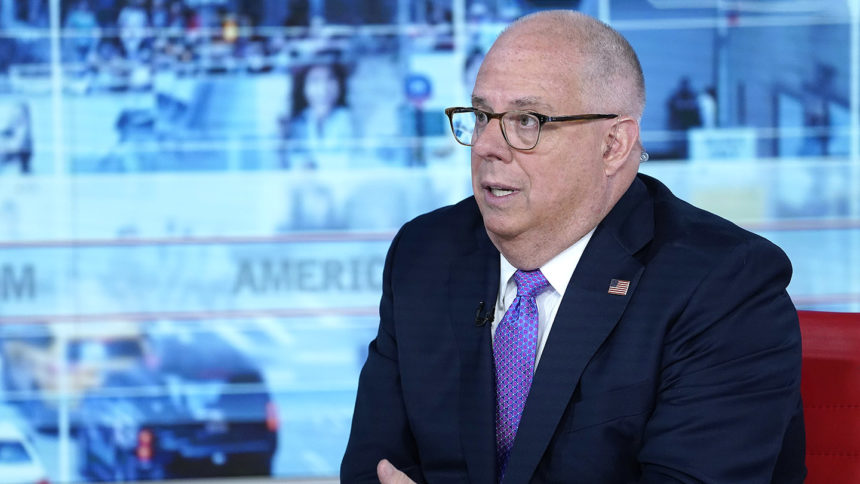
Maryland Gov. Larry Hogan (Credit: John Lamparski / Contributor / Getty Images)
Flexibility tied to staff certification is aimed at helping Maryland’s assisted living communities and other long-term care facilities, pharmacies and hospitals address staffing shortages amidst the surge of the omicron COVID-19 variant. But senior living leaders say that more focus needs to be on long-term solutions.
Gov. Larry Hogan signed an executive order Monday expanding the state’s efforts to support healthcare facilities — including assisted living communities — by providing more licensing flexibility for pharmacists and technicians and expanding the use of nursing and respiratory therapy students.
Specifically, the order expands the state’s initiative to allow nursing students to serve as licensed practitioners by also including licensed practical nurses, certified nursing assistants and certified medical technicians in assisted living communities, nursing homes, hospice facilities, residential treatment facilities and home health agencies.
Health Facilities Association of Maryland President and CEO Joseph DeMattos Jr. told McKnight’s Senior Living that the executive order provides short-term help by allowing nursing assistants, certified medical technicians and nursing students who have graduated but not yet taken their exam, to practice. Workforce recruitment and retention was a top challenge even before the pandemic, and the latest omicron surge has left providers with even fewer employees, he said.
“Our healthcare heroes who continue to work on the frontlines are understandably fatigued from fighting COVID these last two years,” DeMattos siad. “Because of the highly contagious nature of omicron, many healthcare workers are testing positive for COVID and not able to work.”
LeadingAge Maryland President and CEO Allison Roenigk Ciborowski told McKnight’s Senior Living that there is “so much more that needs to be done at both a state and federal level to support the aging service workforce.”
“These small, time-limited flexibilities will help some providers some of the time, but we continue to advocate for permanent changes that will support more individuals entering the workforce and staying,” she said.
Ciborowski said that LeadingAge Maryland continues to work with state legislators to find ways to develop paths for temporary nursing assistants — who are working in nursing homes under federal waivers — to become fully certified, recognizing the hours of experience and on-the-job training they have completed during the pandemic.
The order is effective through the federal public health emergency.


